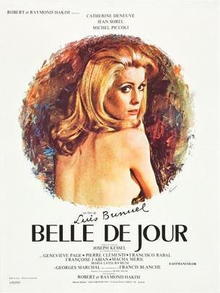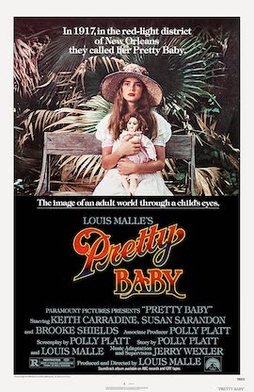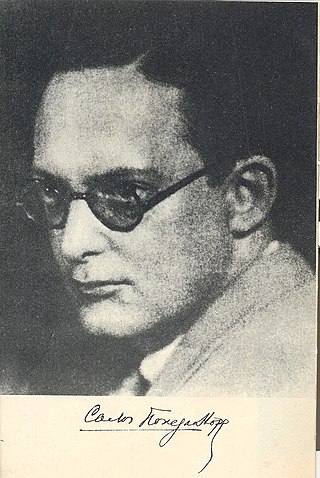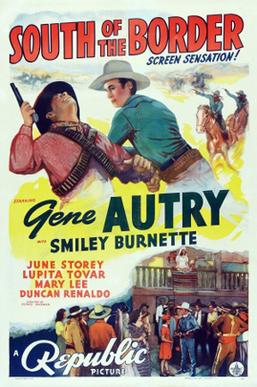
Belle de Jour is a 1967 French New Wave psychological drama film directed by Luis Buñuel, and starring Catherine Deneuve, Jean Sorel, and Michel Piccoli. Based on the 1928 novel Belle de Jour by Joseph Kessel, the film is about a young woman who spends her midweek afternoons as a high-class prostitute, while her husband is at work.

The Portrait of Andalucian Lozana was published in Venice by the Spanish Renaissance writer, Francisco Delicado, in 1528, after he escaped from Rome due to the anti-Spanish sentiment that uprose after the sack of Rome a year earlier. Published anonymously, the book contains a description of the life in Rome's underworld during the first third of the 16th century, focussing particularly on the world of immigrant women from Spain and Spanish Southern Italy. It includes one of the first accounts of women making beauty products, and working as beauty technicians. It is considered a book descendant of Celestina because of the literary genre, the novel in dialogue, and one of the earliest manifestations of the picaresque novel. There is only one extant copy of the book, now in the National Library of Austria, Vienna.

Pretty Baby is a 1977 American historical drama film directed by Louis Malle, written by Polly Platt, and starring Brooke Shields, Keith Carradine, and Susan Sarandon. Set in 1917, it focuses on a 12-year-old girl being raised in a brothel in Storyville, the red-light district of New Orleans by her prostitute mother. Barbara Steele, Diana Scarwid, and Antonio Fargas appear in supporting roles. The film is based on the true account of a young girl who was sexually exploited by being forced into prostitution by her mother, which was recounted in historian Al Rose's 1974 book Storyville, New Orleans: Being an Authentic Illustrated Account of the Notorious Red-Light District, as well as the life of photographer Ernest Bellocq, who photographed various New Orleans prostitutes in the early-twentieth century. Its title is derived from the Tony Jackson song of the same name, which is used in the soundtrack.

Guadalupe Natalia Tovar Sullivan, known professionally as Lupita Tovar, was a Mexican-American actress best known for her starring role in the 1931 Spanish-language version of Drácula, filmed in Los Angeles by Universal Pictures at night using the same sets as the Bela Lugosi version, but with a different cast and director. She also starred in the 1932 film Santa, one of the first Mexican sound films, and one of the first commercial Spanish-language sound films. At the time of her death, she was the oldest living actress and one of the last surviving stars from the Golden Age of Mexican cinema and from the Golden Age of Hollywood.

Mary Loretta Philbin was an American film actress of the silent film era, who played Christine Daaé in the 1925 film The Phantom of the Opera opposite Lon Chaney, and Dea in The Man Who Laughs alongside Conrad Veidt.

Alborada is a Mexican telenovela produced by Carla Estrada for Televisa in 2005. It is a historical drama set in colonial Panama and Mexico a few years before the Mexican Independence from Spain.

Adua and Her Friends, also known as Hungry For Love, is a 1960 Italian film directed by Antonio Pietrangeli with a collaborative screenplay by the film's director together with Ruggero Maccari, Ettore Scola and Tullio Pinelli. The movie is about four prostitutes who start a restaurant after their brothel is shut down by the Merlin law, which made brothels illegal in Italy.
Fannie Porter was a well-known madam in 19th-century Texas, in the United States. She is best known for her popular San Antonio brothel, and her association with several famous outlaws of the day.
Your Five Gallants is a Jacobean comedy by Thomas Middleton. It falls into the subgenre of city comedy. Allusions in the play point to a date of authorship of 1607.

Carlos Noriega Hope (1896–1934) was a Mexican writer and journalist. Born in Tacubaya, Mexico City, he studied law and became a journalist. In 1919 he traveled to Hollywood to report on the new cinematographic industry. Besides writing the scripts for important films such as Santa, based on the book by Federico Gamboa, and Una Vida por otra , he published several short stories where he pictured the early rise of Hollywood. The book was edited under the names "La inutil curiosidad" and "Las experiencias de Miss Patsy"
El Rosario de Amozoc is a 1938 Mexican film directed by José Bohr. It stars Lupita Tovar, Carlos Orellana, Emilio Tuero, Elena D'Orgaz, Daniel "Chino" Herrera and Ernesto Cortázar.
The Escape is a 1944 Mexican historical adventure film directed by Norman Foster and starring Esther Fernandez, Ricardo Montalbán, and Carlos Orellana. It is based on the 1880 Guy de Maupassant short story Boule de suif. The sets were designed by the art director José Rodríguez Granada.
Casa de Mujeres is a 1966 Mexican drama film directed by Julián Soler and starring Dolores del Río. In some countries the film was named El Hijo de Todas.

South of the Border is a 1939 Western film directed by George Sherman and starring Gene Autry, Smiley Burnette, and June Storey. Written by Betty Burbridge and Gerald Geraghty, based on a story by Dorrell and Stuart E. McGowan, the film is about a federal agent who is sent to Mexico to prevent foreign powers from gaining control of Mexican oil refineries and fomenting revolution among the Mexican people.

Lupita dolls, also known as cartonería dolls, are toys made from a very hard kind of papier-mâché which has its origins about 200 years ago in central Mexico. They were originally created as a substitute for the far more expensive porcelain dolls and maintained popularity until the second half of the 20th century, with its availability of plastic dolls. Today they are made only by certain artisans’ workshops in the city of Celaya, as collectors’ items. Since the 1990s, there have been efforts to revitalize the crafts by artists such as María Eugenia Chellet and Carolina Esparragoza sponsored by the government to maintain traditional techniques but update the designs and shapes.
María Teresa is a 1972 Venezuelan telenovela written by Cuban writer Delia Fiallo and broadcast on Venevisión. The telenovela starred Lupita Ferrer and José Bardina as the main protagonists.

The Veiled Woman is a 1929 American silent drama film directed by Emmett J. Flynn and starring Lia Torá, Lupita Tovar and Walter McGrail, also featuring Bela Lugosi. This film was initially advertised as being a sound film, but at the last minute, the producer decided to film it as a silent instead.

Storm Over the Andes is a 1935 American adventure film directed by Christy Cabanne and starring Jack Holt, Antonio Moreno and Mona Barrie. The low-budget programmer is set against the backdrop of the Chaco War between Paraguay and Bolivia. A separate Spanish-language version, titled Alas Sobre El Chaco, also directed by Cabanne, was made.

Gangubai Kathiawadi is a 2022 Indian Hindi-language biographical crime drama film directed by Sanjay Leela Bhansali and produced by Bhansali and Jayantilal Gada. The film stars Alia Bhatt in the title role, alongside Shantanu Maheshwari, Vijay Raaz, Indira Tiwari, Seema Pahwa, Jim Sarbh and Ajay Devgn.














